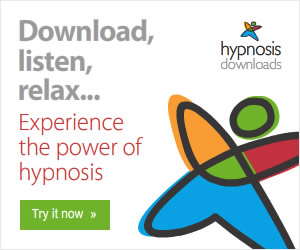People are always asking me to explain hypnotherapy and I find they have totally the wrong idea, possibly from films. This article by Judith Pearson explains exactly what hypnotherapy is and isn't. We both work in a similar way using various forms of hypnosis plus I am also a Master Practitioner of NLP, Neuro Linguistic Programming. You can visit my site at www.HypnotherapyBelgium.com - Antonia Harrison
******
After over 20 years as a Licensed Professional Counselor, Hypnotherapist, and Practitioner of Neuro-Linguistic Programming, I continue to find that clients come to me with misperceptions and unfounded expectations about hypnotherapy. The purpose of this paper is to clear up some of those misperceptions, so that you know what to expect in working with me or any other hypnotherapist.
First, some clients expect they can just walk into my office for the very first time, sit down, be instantly hypnotized, and walk out 60 minutes later a changed person. I wish that were the case, but it isn't. Like most therapists and medical specialists, I want to interview you to learn about your issues and concerns and about your personality. I will ask you these questions in order to develop a plan that I think will best serve you.
Second, some clients have a very antiquated and narrow definition of hypnotherapy. They think I am going to wave a watch before their eyes and I'll say, "Go into a deep sleep," and they will instantly lose consciousness. I think this attitude is due to the influence of too many Hollywood movies. I am a solution-oriented therapist and counselor. That means that I use several methods to help clients get the results they want. I draw upon traditional hypnosis, guided imagery, visualization, metaphor, Ericksonian hypnotherapy, eye-movement therapies, client-centered methods, cognitive psychology, reframing and Neuro-Linguistic Programming to meet my clients' needs.
There are many approaches to hypnotherapy. Some are structured and direct, while some are more creative and indirect. I select the methods from my repertoire that I think will best work for you. However, it is a trial and error process. If one method doesn't work with you, perhaps another will, or you might benefit from a combination of methods. Hypnosis is a learning process and clients sometimes have unconscious concerns they need to work through, or they may need to hear the message more than once, in various presentations. For this reason, I cannot always predict with accuracy the number of sessions that will be optimum for your needs.
Third, many clients expect trance to be some magical, mysterious state in which they will experience strange sights, sounds, and sensations, like being on some mind-altering, hallucinogenic drug. Or they might expect to have no memory for the experience at all because they equate trance with being unconscious. Let me explain that trance is not an all-or-nothing experience. Trance is just part of the continuum between alertness and sleep. Therefore, trance is a naturally-occurring state, and people access trance every day.
With hypnotherapy, the depth of trance can vary. Some people reach a light trance, and some are very adept at easily accessing a deep level of trance.
Here are some basic descriptions of trance levels:
Light Trance: This is a state of curiosity and concentration, like daydreaming. I may ask you to close your eyes and visualize or remember something. You don't have to close your eyes if you don't want to. You remain aware of your surroundings. You can carry on a conversation. You still have complete control over your actions. You can hear every word and remember what happened during the session. You won't feel weird or spacey or zoned out.
Medium Trance: You will feel more relaxed with a deeper concentration. Questions or new ways of thinking about things may enter your mind, because it's easier for you to make new associations, imagine, entertain new possibilities, and obtain insight. You still remain aware of your surroundings, although you may lose track of time. You may or may not notice that you feel more compliant and suggestible. You won't feel weird or spacey or zoned out.
Deep Trance: At this stage, your mind is so free of distractions that you can ignore anything not relevant. You can have spontaneous amnesia, and not remember what happened, and rationalize later that you were asleep. Suggestibility is highest at this stage, in which the conscious mind is resting (not participating) and the subconscious mind is most active. You might enter that twilight stage between waking and sleeping known as the "hypnogog." Beyond this state, you will fall asleep.
Any stage of trance might be appropriate for the issues you want to address with hypnotherapy. Most clients experience light and medium trance during their first few sessions of hypnotherapy. Although a minority of hypnotherapists say that clients can achieve results only with deep trance, this view is not widely accepted and is easily dismissed. Many people get results from hypnotherapy and were not even sure whether they were hypnotized because they felt so "normal" during the process.
Fourth, while some clients worry as to whether they are hypnotizable, many hope and expect that they will achieve deep trance instantly and easily. I too wish that were the case. It would make my job much easier. Most people can be hypnotized, if they want to be hypnotized. However, not everyone will easily reach deep trance. Some clients exhibit a natural capacity for trance work, and they readily reach deep trance. On the other, hand there are many people who simply cannot reach deep trance, or who can do it only after hours of practice.
One of the aims of hypnosis is to help you work more closely with your own subconscious mind--the source of your inner wisdom. It is my philosophy that everyone creates their own experience of trance, and that your subconscious mind will take you to the level of trance that adequately solves your problem. I will do my best to help you do just that.
Finally, some of my clients expect that I will take control over their thinking and actions, and after hypnosis, they will behave as an automaton--achieving results without any conscious effort. The purpose of hypnosis is not to take away your control--its purpose is to give you back control, so that you can have the results you say you want. The purpose of hypnosis is not to stop you from thinking, but to enhance your ability to think in productive, healthy ways, so you can make a decision about what you want to accomplish and carry it out faithfully.
My job as your hypnotherapist is to convince you of the truth that I believe about you, but you haven't yet begun to believe about yourself: You already have within you all the internal resources (strength, power, motivation, determination, creativity, intuition, insight, intelligence) you need to solve your problem and get the results you want. All hypnosis does is help you find and tap into those resources that have been there all the time.
About the Author:
Judith E. Pearson, Ph.D., is a licensed psychotherapist, counselor, coach, and Certified Master Clinical Hypnotherapist with a solo practice in Springfield, Virginia. She has recently published The Weight, Hypnotherapy and You Reduction Program: An NLP and Hypnotherapy Practitioner's Manual (Crown House). She is the Executive Director of the National Board for Certified Clinical Hypnotherapists. Her website is http://www.engagethepower.com
Article Source: http://EzineArticles.com/?expert=Judith_Pearson
Antonia Harrison is the English Hypnotherapist & NLP Practitioner in Belgium and recommends Download Hypnosis Mp3 for immediate, affordable hypnosis Mp3s to improve your life.
Tuesday, 15 September 2009
Hypnotherapy -- What You Can Expect
Subscribe to:
Post Comments (Atom)












No comments:
Post a Comment